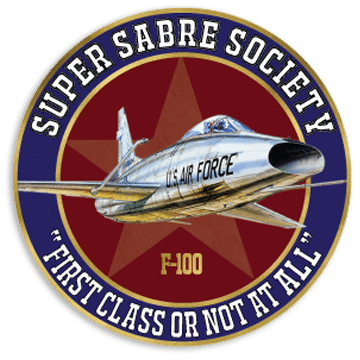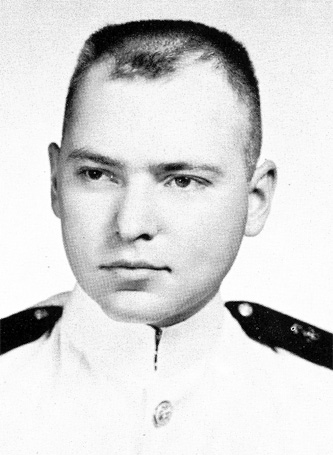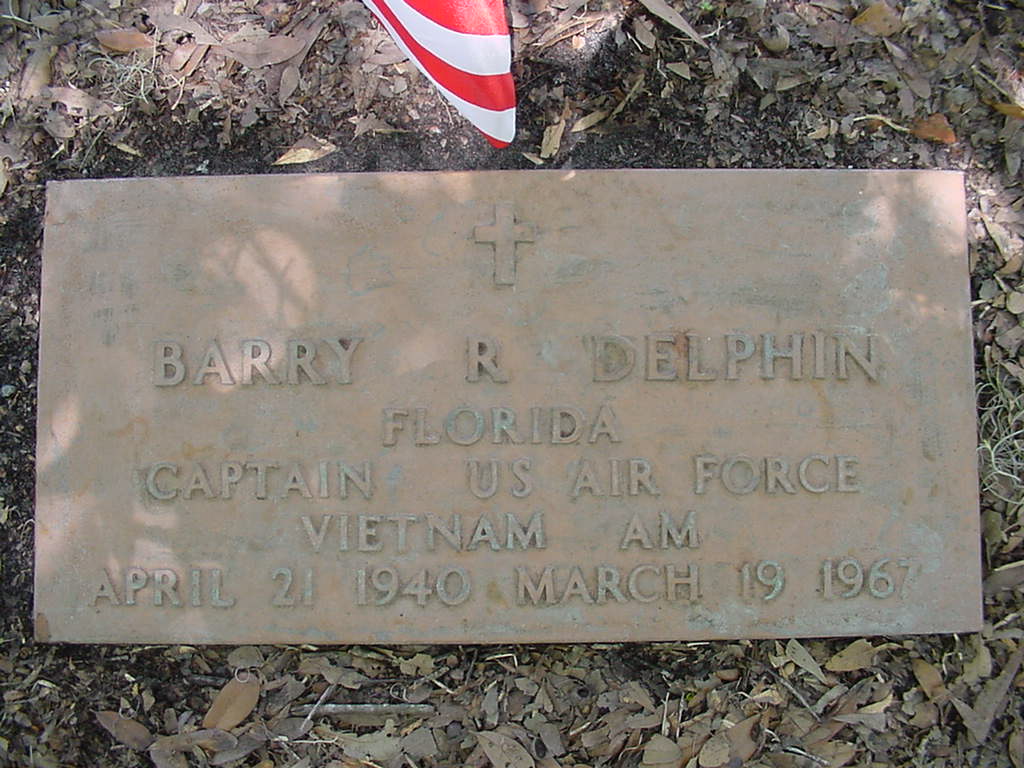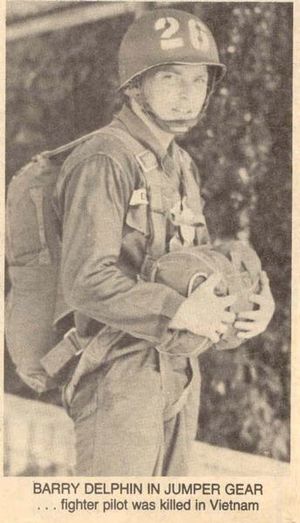Barry Russel Delphin enlisted in the USAF and began his Vietnam tour on December 7, 1966. Captain Delphin was conducting a close air support mission near Lai Khe, north of Saigon, in an F-100D (tail number 55-2912). Delphin’s aircraft was struck by automatic weapons fire and crashed before he could eject.
Barry, 26, left behind his wife Phyllis Douglas Delphin, a daughter Kletia 3 1/2 and son Casey 2 1/2; his mother Mary Albro Delphin; his father Eugene, and a brother Robin Hood.
A note from his cousin on The Virtual Wall says “Barry was a fun loving, intelligent person. He was born in West Greenwich, Rhode Island, but grew up in Clearwater, Florida, where he graduated from Clearwater High School – he was class President. He graduated from the U.S. Naval Academy in Annapolis, MD, married Phyllis and then joined the Air Force. They were stationed in Big Spring, Texas, and Germany. While in Germany he volunteered to fly in combat. He went to Vietnam in December of 1966. He said not to worry. We corresponded regularly and he was writing the “Great American War Novel” by hand and I was typing it. We only got to chapter 3.”(1)
Major Darryl Couch (USAF, Ret) remembers “Barry was new to our unit, 614 Tactical Fighter Squadron, Phan Rang, RVN. Barry did not deploy with our unit. He joined the unit after we were in place. We flew the F-100 Super Sabre. I did not know Barry that well, but I remember the night he was killed in action in graphic detail.
It was a rare early evening for our area. Cool and calm. We leaned our chairs back against the alert shack wall and talked as we watched the sun set. We were sitting the night alert shift. I was flight lead and Barry was # 2. All alert flights were two ship. Barry talked a little about a book he was going to write about his war experience. I commented it was a nice night and would like to fly. Barry was hesitant, he did not want to fly that night.
The scramble call came late at night after we had all gone to bed. An artillery battery of the First Infantry Division was under attack and wanted an alert flight loaded with CBU-2. That was not a standard alert load, and aircraft were being loaded and a crew would have to switch planes. The command center wanted a volunteer crew, but none of the three crews on alert wanted to fly, and we were not allowed to split crews. As lead crew, Barry and I were scrambled.
Everything was uneventful until we arrived at the target. The flare ship was low on flares and could only drop one flare at a time or they would run out before we could get our strike completed. We had a middle thin cloud deck at about 7,000′ and ground fog was forming. Friendly and enemy positions combined with ordnance that required a long straight through low level pass at 250′, dictated all weapons delivery passes be made on the same heading.
I made the first pass and had to abort due to visual problems from the fog and almost flying into the ground. I told Barry of the visual problems and cautioned him to keep instruments in his crosscheck. The forward air controller (FAC) cleared him for his first pass. He lined up and called in hot. That was his last radio call and we could not find him visually, but at night, that was not that unusual. I thought perhaps he had radio failure.
I continued my pattern for my next pass. Just as I was rolling wings level, Barry crashed directly in front of my aircraft. I flew through the top of the fire ball from the crash. The NVA Battalion attacking the artillery battery must have thought we had a mid air collision for they did a frontal charge at the battery. My next CBU pass was directly on the charging line and the attack was broken, but not over. After expending all my ordnance, I passed the target to the next fighter flight. The artillery battery was saved.
The flight home was long and lonely.
Looking back, I still think my thoughts of the time are accurate. I think Barry was hit and killed in the cockpit. He tried to pull up out of the attack, and on its own, the aircraft simply did a circle back to the starting point and crashed.
I feel something else is needed here, but I simply don’t have it now. I do pray he had made his peace with God.” (2)
Barry is buried in Dunedin Cemetery, Dunedin, Pinellas County, Florida.
Barry is honored on the Vietnam Veteran’s Memorial in Washington DC. Name inscribed at VVM Wall, Panel 16e, Line 120
Source (1) https://www.virtualwall.org/dd/DelphinBR01a.htm; (2) https://usnamemorialhall.org/index.php/BARRY_R._DELPHIN,_CAPT,_USAF











